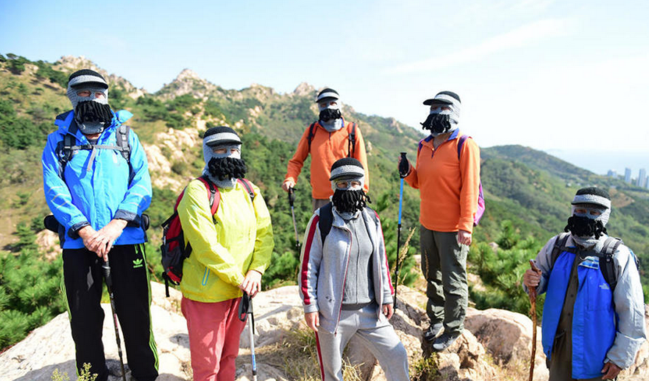Facekini inventor launches knitting version for cold weather
- By Liu Sitong
 0 Comment(s)
0 Comment(s) Print
Print E-mail China.org.cn, December 6, 2017
E-mail China.org.cn, December 6, 2017
The latest iteration of facekini was launched in October for the autumn/winter season, with a woolen knitting feature that makes it look quite different from its original version with a smooth feel, made of elastic material commonly used in swimsuits.
Something remains unchanged however. It still covers from the top of head to the collarbones with holes cut out for eyes, noses and neck. So the weird-looking headgear, originally for protecting beachgoers from ultraviolet and other irritants, can still be recognized by its lovers.
Facekini was created by Qingdao resident Zhang Shifan in 2004 and has been popular, especially among middle-age woman, in the coastal city in East China, for its practical use.
And thanks to the coverage on influential foreign media, it became an internet craze in past few years and has turned into a novel fashion trend with diversifying features including Peking Opera facial mask designs and wild animal patterns.
Its inventor Zhang said that they started mass production in 2006 and now 40,000 facekinis are sold annually with orders coming from home and abroad.
The newly launched woolen version is priced at 70 yuan. It helps keep the head and the neck warm when exposed to cold wintry weather with a visor and beard-like woolen tassels over the mouth to ward off cold winds.




